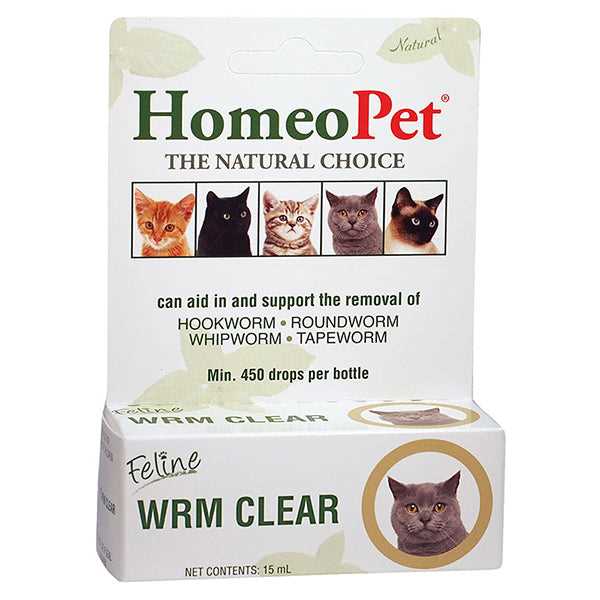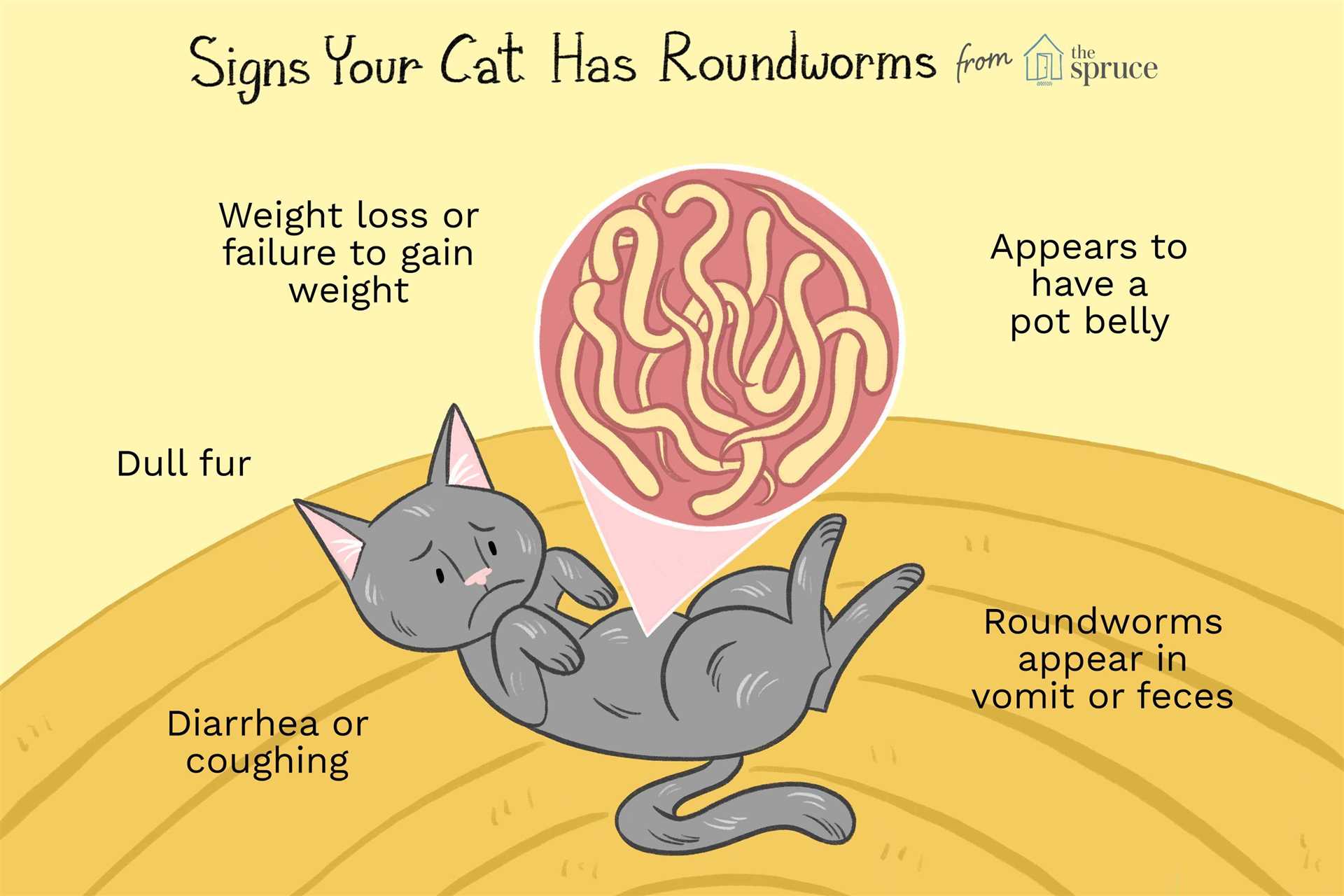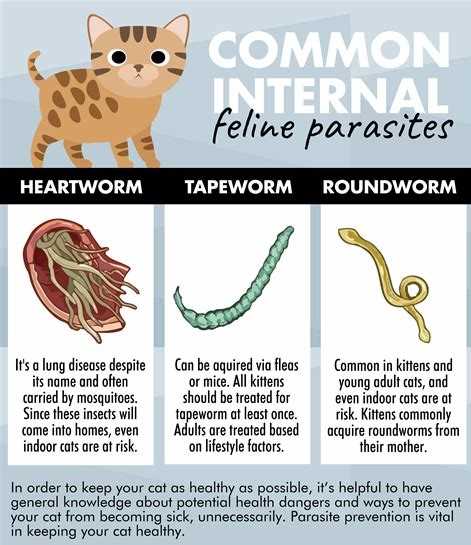Administering a deworming medication containing pyrantel pamoate is a solid choice for eliminating intestinal parasites. This treatment effectively paralyzes and expels unwelcome guests from the digestive system. A veterinarian can prescribe the appropriate dosage based on body weight, ensuring safety and efficacy.
Regular fecal examinations play a crucial role in identifying the presence of these parasites. By taking a stool sample to the vet, the specific type of infestation can be determined, guiding the right course of action. Maintaining this routine check can help catch any issues early and keep those pesky invaders at bay.
Keeping the living environment clean is another key strategy. Regularly cleaning litter boxes and ensuring proper hygiene can significantly reduce the risk of reinfestation. Additionally, avoiding raw diets and providing a balanced, commercially prepared food can strengthen overall health, making it harder for parasites to thrive.
Monitoring for symptoms like weight loss, vomiting, or changes in appetite is essential. Observing these signs early allows for prompt veterinary intervention, ensuring a speedy recovery. Adopting preventive measures, such as routine deworming every few months, can further safeguard against these unwelcome intruders.
Identifying Symptoms of Roundworm Infestation

Recognizing the signs of a parasite invasion is crucial. Common indicators include a noticeable increase in appetite, yet weight loss might occur, signaling a problem. Look for any unusual behavior such as lethargy or decreased playfulness; this could indicate discomfort or illness.
Physical Signs
A bloated abdomen, often referred to as a “potbelly,” may appear in affected individuals. Monitoring the litter box for irregularities like pale stools or the presence of small, white, rice-like segments can provide further clues. Additionally, vomiting may occur, sometimes expelling worms. Keep an eye out for any changes in grooming habits; a decrease in grooming can suggest a lack of energy or health issues.
Behavioral Changes
Changes in mood or behavior can also signal distress. Increased irritability or hiding more than usual can indicate discomfort. Regular observation of these signs can ensure timely intervention, promoting better health and well-being.
Choosing the Right Deworming Medication

For tackling those unwanted intestinal guests, selecting the appropriate medication is key. Two common options are pyrantel pamoate and fenbendazole. Pyrantel pamoate is often favored for its effectiveness against various types of nematodes, while fenbendazole offers a broader spectrum, addressing additional parasites too.
Consulting a Veterinarian

Before jumping into any treatment, a visit to the vet is crucial. They can confirm the presence of those unwelcome critters through a fecal examination. Based on the findings, the veterinarian will recommend the most suitable deworming product tailored to specific needs.
Reading Labels and Instructions
Always check the label for active ingredients and dosage recommendations. It’s essential to follow the instructions precisely to avoid underdosing or overdosing. Some products may require a follow-up dose after a few weeks to ensure all parasites are eliminated.
Additionally, consider the form of the medication. Options include tablets, liquids, or topical treatments. Choose one that’s easiest to administer based on personal experience and the pet’s preferences.
Monitoring for any side effects post-treatment is important. If any unusual behavior or reactions occur, contact the vet immediately to adjust the approach if necessary.
Administering Dewormers Safely to Your Cat
Using deworming medications can be straightforward with the right approach. First, ensure the chosen product is appropriate for the specific parasite and the feline’s age and weight. Always read the label carefully before administration.
For oral medications, hiding the dose in a favorite treat or food can make it easier. If the feline is resistant, using a pill popper can help deliver the medication directly into the mouth. Be gentle and calm to reduce stress during the process.
For topical treatments, ensure the application site is clean and dry. Follow the instructions regarding the area to apply and avoid bathing for a specified period to ensure proper absorption.
Monitoring for any adverse reactions after dosing is essential. Common side effects may include mild gastrointestinal upset. If severe reactions occur, such as vomiting or lethargy, contacting a veterinarian is a priority.
Keep the living environment clean to prevent reinfestation. Regularly clean litter boxes, and consider routine deworming as a preventative measure, especially in multi-pet households.
Lastly, maintaining regular veterinary check-ups ensures optimal health and timely intervention if any issues arise.
Understanding the Life Cycle of Roundworms
The life cycle of these parasites consists of several distinct stages. Eggs are shed in the feces of an infected host and can survive in the environment for years. Once ingested by a new host, the eggs hatch in the intestines, releasing larvae. These larvae can either remain in the intestines or migrate to various tissues, including the lungs.
In the lungs, the larvae mature and are coughed up, swallowed, and return to the intestines, where they develop into adult worms. This cycle can quickly lead to reinfestation if not addressed. Kittens are particularly vulnerable, as they may acquire larvae through their mother’s milk or by ingesting eggs in the environment.
Understanding this cycle is key to preventing and controlling infestations. Regular deworming and maintaining a clean environment are effective strategies to minimize exposure and protect against future infections. Monitoring outdoor access and ensuring proper hygiene can further reduce the risk of encountering these undesired guests.
Preventing Future Roundworm Infections
Regular veterinary check-ups are non-negotiable. Annual fecal examinations will help catch any unwanted guests early. Maintain a consistent deworming schedule, particularly in younger felines, to mitigate risks associated with these parasites.
Environmental Control
Maintaining a clean environment is paramount. Ensure litter boxes are cleaned daily and placed in areas that prevent contamination. Outdoor access should be monitored; avoiding areas where stray animals frequent can significantly reduce exposure.
Proper Nutrition
A balanced diet bolsters the immune system and can help combat infections. Consider high-quality cat food that meets dietary needs. Always keep fresh water available to promote hydration. Supplements may be beneficial, but consult a vet before adding anything new.
| Prevention Strategy | Description |
|---|---|
| Regular Vet Visits | Annual fecal tests and deworming recommendations. |
| Litter Box Hygiene | Daily cleaning to reduce contamination risks. |
| Dietary Management | High-quality nutrition to support the immune system. |
| Outdoor Monitoring | Avoid areas frequented by stray animals. |
Remember to keep grooming tools clean. Regularly trimming nails with the best nail file for cats can contribute to overall health and reduce stress during vet visits.
When to Consult a Veterinarian
Immediate veterinary attention is necessary if any of the following signs are observed:
- Severe vomiting or diarrhea that persists for more than 24 hours.
- Noticeable weight loss or poor coat condition.
- Symptoms of lethargy or unusual behavior.
- Presence of blood in stool or vomit.
- Difficulty breathing or signs of distress.
- Increased appetite without weight gain.
Regular health check-ups should also be scheduled, especially if there is a known exposure to contaminated environments or other animals. A veterinarian can provide tailored advice based on individual circumstances.
In cases where deworming treatments are ineffective, a professional evaluation is crucial to confirm the presence of parasites and to identify any possible complications. Early intervention can significantly improve recovery prospects.
Signs of Complications
If additional symptoms emerge, such as seizures or significant changes in behavior, consulting a vet is imperative. These may indicate severe infestations or other underlying health issues.
For resources on maintaining a clean environment to prevent infestations, check this link: did air scrubber plus go out of business.






